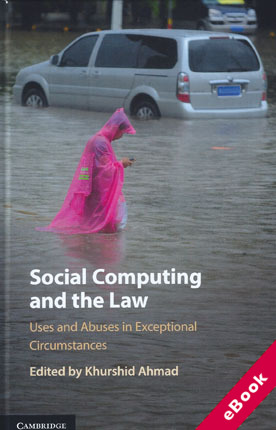
The device(s) you use to access the eBook content must be authorized with an Adobe ID before you download the product otherwise it will fail to register correctly.
For further information see https://www.wildy.com/ebook-formats
Once the order is confirmed an automated e-mail will be sent to you to allow you to download the eBook.
All eBooks are supplied firm sale and cannot be returned. If you believe there is a fault with your eBook then contact us on ebooks@wildy.com and we will help in resolving the issue. This does not affect your statutory rights.
This innovative book sets itself at the crossroads of several rapidly developing areas of research in legal and global studies related to social computing, specifically in the context of how public emergency responders appropriate content on social media platforms for emergency and disaster management.
The book - a collaboration between computer scientists, ethicists, legal scholars and practitioners - should be read by anyone concerned with the ongoing debate over the corporatization and commodification of user-generated content on social media and the extent to which this content can be legally and ethically harnessed for emergency and disaster management.